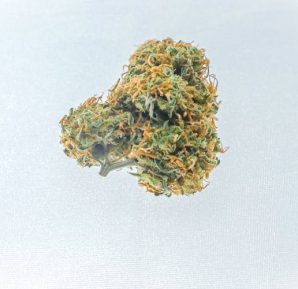For years the stereotypical image of a cannabis user was usually a “couche-dwelling” guest with a bag of crunchy snacks. Famous for the excitement of munchies “And food, in the past, cannabis almost didn’t have the image of health and vitality in people. But what about using CBD oil for weight loss?
Multiple cases and research among people individually have revealed an interesting surprise: people who cannabinoids have a lower statistical weight and a lower BMI use than the use of CBD.
Weight loss and the endocannabinoid system
A better body composition among cannabis users than non-users may seem paradoxical. But an explanation may lie in the function of the endocannabinoid system (ECS).
Neurotransmitters include substances called “endocannabinoids”. The body ensures that messages are transmitted to the cells via receptors. Plant cannabinoids – or phytocannabinoids – such as CBD function in the same way as endocannabinoids.
As with other body systems, there is a range of normal activity. When the system balance does not fall within this range in the direction of sub-activity or hyperactivity a malfunction occurs. Many studies report that in the case of obesity, diabetes, and metabolic syndrome there is clear evidence of hyperactivity of the endocannabinoid system.
Alicia Salazar, a certified New York state health coach, uses CBD with her clients to maximize their health outcomes. “I don’t look at CBD as a magic wand for weight loss,” he said. “But CBD along with a healthy diet a diet that contains healthy fats, whole grains, meat, and dairy products and lots of vegetables, no processed foods and sugar sets the tone for a healthy weight. And for some, it may be a natural weight loss. “
How can CBD oil help with weight loss?
The first stimulus that encourages people to arrive is often simple. It’s just a question of an imbalance between calories and calories. However, the long-term effects of this high-calorie state are not always easy to reverse.
Correcting an excess of calories with a calorie deficit sometimes works for weight loss, but it can be difficult. First of all, reducing calories makes people hungry, which can be incredibly uncomfortable. Secondly, weight gain can cause changes in hormone levels and balance, metabolic patterns, inflammation, and balance in the endocannabinoid system.
Sustainable weight loss requires a return to a healthy balance in these body systems. Studies have shown that cannabinoids are not only effective for regulating ECS, but they can also have a positive influence on the dysfunction that occurs in other systems.
Ric Tyler, a holistic certified cannabis practitioner, has discovered that balance is essential. “I have used and recommended CBD for homeostasis (balance in the body) and to properly set up the endocannabinoid system so that it can adequately support other body processes,” he says.
In his practice, Tyler has found no evidence that CBD acts directly to facilitate weight loss. On the other hand, he discovered that he can correct the imbalance that would otherwise occur regularly with weight loss.
What do the tests on the use of CBD oil for weight loss say? Read on to learn more about the latest research.
Insulin resistance and increased glucose uptake by CBD
An important feature of obesity and diabetes is insulin resistance. The normal metabolic process follows a repeatable pattern:
- Food is consumed
- Blood sugar salts
- The pancreas releases insulin to send that glucose to the body’s cells
Cells use glucose to produce energy
In circumstances where dietary patterns chronically release too much glucose, the system does not work. The body’s cells can no longer absorb glucose, so they become resistant to the signal from insulin to get simple sugar into the cell.
The verdict on CBD oil for weight loss
The evidence weighs heavily on the health of the endocannabinoid system which is inseparably linked to the health of the whole body. In fact, measuring endocannabinoid activity levels is a recently proposed metabolic health indicator.
In general, this recent study shows great promise in the development of new potential effective and safe therapies for obesity and diabetes.
However, it is important to remember that these areas of study are still very new and at an early stage. This makes it difficult to predict how far the scope and impact will be. Combined with lifestyle and dietary changes, it is very likely that the prescribed use of cannabinoids is a crucial intervention and important addition to the future of obesity and diabetes management and recovery.












